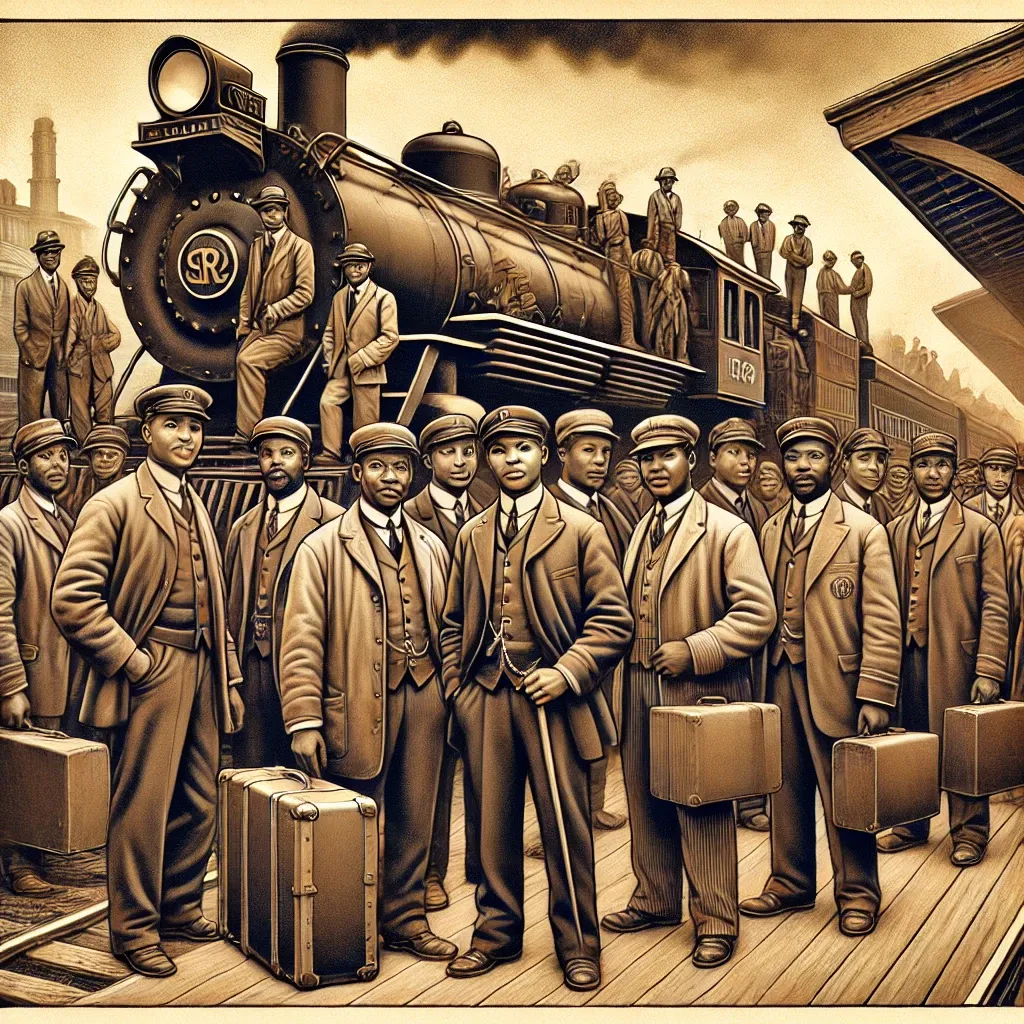The history of labor unions in America is a complex tapestry of struggle, perseverance, and gradual progress. While many stories of labor organization focus on factory workers or miners, one of the most influential – yet often overlooked – chapters in this history revolves around the railroad porters. These predominantly African American workers not only fought for their own rights but also paved the way for broader labor reforms and union movements across the country.
The Role of the Porter
In the late 19th and early 20th centuries, railroad porters were essential to the passenger rail experience. They were responsible for assisting passengers, maintaining cleanliness, and ensuring comfort on long journeys. Despite their crucial role, porters faced grueling working conditions, low wages, and pervasive racial discrimination.
Organizing Against the Odds
The path to organizing was fraught with challenges for railroad porters. They faced:
- Racial segregation and discrimination
- Intimidation and threats from employers
- Lack of legal protections for union activities
- Economic vulnerability due to low wages
Despite these obstacles, porters began to organize in the early 1920s. A key figure in this movement was A. Philip Randolph, who founded the Brotherhood of Sleeping Car Porters (BSCP) in 1925. This was the first labor organization led by African Americans to receive a charter in the American Federation of Labor (AFL).
Harsh Tactics and Resistance
As porters attempted to unionize, they faced severe backlash:
- Firings and blacklisting of known union supporters
- Infiltration of union meetings by company spies
- Economic retaliation, including reduced hours and unfavorable assignments
- Physical intimidation and violence
The Pullman Company, which employed the majority of porters, was particularly notorious for its anti-union tactics. They used their economic power and political connections to suppress organizing efforts for years.
Persistence Pays Off
Despite these harsh tactics, the porters persevered. Their methods of organizing included:
- Secret meetings and covert communications
- Building alliances with civil rights organizations
- Leveraging the press to publicize their cause
- Engaging in grassroots education campaigns among workers
After more than a decade of struggle, the BSCP finally won recognition from the Pullman Company in 1937, marking a significant victory for African American workers and the broader labor movement.
Impact on Labor Laws and Unions
The fight of the railroad porters had far-reaching consequences:
- The Railway Labor Act of 1926: While initially excluding porters, the act was later amended to include them, providing a legal framework for collective bargaining in the railway industry.
- Inspiration for other minority workers: The success of the BSCP encouraged other minority groups to organize and demand better working conditions.
- Civil Rights Movement: The organizational skills and networks developed by the porters played a crucial role in the emerging Civil Rights Movement of the 1950s and 60s.
- Fair labor practices: The porters’ struggle highlighted the need for fair labor practices and contributed to the passage of anti-discrimination laws in employment.
Limitations and Ongoing Struggles
Despite their significant contributions, the railroad porters and other African American unions didn’t always enjoy the full benefits that white-dominated unions did. They continued to face:
- Segregation within the broader labor movement
- Unequal access to job opportunities and promotions
- Persistent wage gaps compared to white workers in similar roles
Nevertheless, the legacy of the railroad porters’ union movement continues to inspire labor organizers and civil rights activists today. Their story serves as a powerful reminder of the intersection between labor rights and civil rights, and the ongoing struggle for equality and justice in the workplace.
As we reflect on the history of labor unions in America, let us remember the courage and determination of the railroad porters who, against all odds, organized for their rights and in doing so, helped shape the future of labor in the United States.
